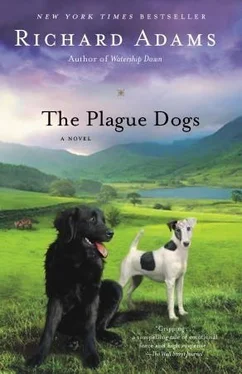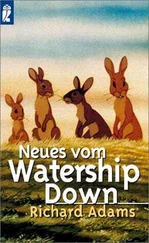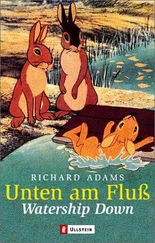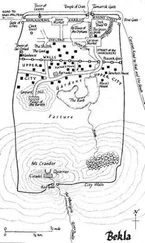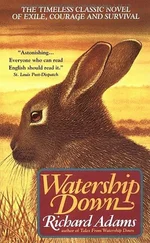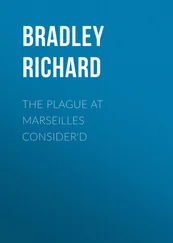Richard Adams - The Plague Dogs
Здесь есть возможность читать онлайн «Richard Adams - The Plague Dogs» весь текст электронной книги совершенно бесплатно (целиком полную версию без сокращений). В некоторых случаях можно слушать аудио, скачать через торрент в формате fb2 и присутствует краткое содержание. Город: New York, Год выпуска: 2007, ISBN: 2007, Издательство: Ballantine Books, Жанр: Природа и животные, Фэнтези, на английском языке. Описание произведения, (предисловие) а так же отзывы посетителей доступны на портале библиотеки ЛибКат.
- Название:The Plague Dogs
- Автор:
- Издательство:Ballantine Books
- Жанр:
- Год:2007
- Город:New York
- ISBN:978-0-345-49402-3
- Рейтинг книги:3 / 5. Голосов: 1
-
Избранное:Добавить в избранное
- Отзывы:
-
Ваша оценка:
- 60
- 1
- 2
- 3
- 4
- 5
The Plague Dogs: краткое содержание, описание и аннотация
Предлагаем к чтению аннотацию, описание, краткое содержание или предисловие (зависит от того, что написал сам автор книги «The Plague Dogs»). Если вы не нашли необходимую информацию о книге — напишите в комментариях, мы постараемся отыскать её.
, Richard Adams creates a lyrical and engrossing tale, a remarkable journey into the hearts and minds of two canine heroes, Snitter and Rowf, fugitives from the horrors of an animal research center who escape into the isolation—and terror—of the wilderness.
The Plague Dogs — читать онлайн бесплатно полную книгу (весь текст) целиком
Ниже представлен текст книги, разбитый по страницам. Система сохранения места последней прочитанной страницы, позволяет с удобством читать онлайн бесплатно книгу «The Plague Dogs», без необходимости каждый раз заново искать на чём Вы остановились. Поставьте закладку, и сможете в любой момент перейти на страницу, на которой закончили чтение.
Интервал:
Закладка:
ENVOY
Sir Peter Scott, despite his well-known ability as a sailor, did not very often put to sea in winter. There was always a great deal to do at Slimbridge, to say nothing of his passion for painting and the heavy load of correspondence, all over the world, with wildlife conservation groups and the like. The happy arrival, however, on a visit from New Zealand, of his old friend and fellow-naturalist Ronald Lockley had coincided with two letters asking for ornithological advice—one from Bob Haycock, warden of the Calf of Man nature reserve, and the second from none other than Major Jim Rose of the Drigg reserve at Ravenglass. The weather being mild for winter and his visitor entirely ready to fall in with the idea of a little sea adventure—the more so since, as it happened, he had never visited the Calf of Man—the distinguished pair had set out in the Orielton , a converted lifeboat which Sir Peter found extremely handy for coastal and island voyaging.
They had enjoyed unusually fine days during three hundred miles of seafaring north to Anglesey, putting in at several islands off the Welsh coast to visit old haunts of Lockley’s and in particular staying a night each at the bird observatories on Skokholm and Bardsey, where they were welcomed with delight by the resident wardens. Once Anglesey was left behind they had a splendid following wind across the last sixty miles and finally anchored, one Wednesday evening, in the calm of Port Erin, where Alan Pickard, that best of booksellers, received them hospitably before their visit to the Calf on the following day.
The visit—though it is always pleasant and heart-warming to see the aerial games of choughs, to help to clear a mist-net, watch a qualified bird-ringer at work and read his records of snow buntings, purple sandpipers and yellow-browed warblers—had in one respect proved disappointing. Lockley, whose knowledge of sea-birds was unsurpassed and whose forte was the study of shearwaters worldwide, still entertained the hope that one day the Manx shearwater—and with any luck the puffin too—might be restored to the Isle of Man; or at any rate to the Calf, where it had first been discovered. There were, however, formidable obstacles, chief of which was the extreme difficulty of exterminating the rats which had made survival virtually impossible for both species by infesting their underground tunnels and devouring their eggs and young. Against such attacks these burrowing birds had no remedy. Bob Haycock had not felt able to be encouraging about the prospects, and Ronald Lockley and Peter Scott, despite their recollections of the success of various sanctuary projects they had founded (such as the Wildlife Trust at Slimbridge and more lately the establishment of New Zealand’s first bird observatory on the shores of the Firth of Thames, near Auckland), were a trifle disposed, as the Orielton approached the end of the eighty miles between the Calf and Ravenglass, to give way to melancholy thoughts (or perhaps they were just plain hungry).
Ronald sat at the helm, cutting beef for sandwiches off the bone and reflecting on the frame of things disjointed.
“You know, ignorant sentimentality about animals and birds can be as bad as deliberate destruction,” he remarked, wiping the spray off his glasses and turning the Orielton’s nose a point to starboard. “Well-intentioned amateurs like that chap Richard Adams—fond of the country—reasonably good observer—knows next to nothing about rabbits—hopelessly sentimental—everyone starts thinking rabbits are marvellous when what they really need is keeping down if they’re not to become an absolute pest to the farmer—”
“But you said yourself in your book that humans are so rabbit,” interrupted Peter Scott. “If that’s not anthropomorphic—”
“Well, that’s different,” said Ronald firmly. “Anyway, humans need keeping down, too, come to that. But what is all wrong, for instance, is importing creatures like Greek tortoises, which are totally unsuited to a British climate, for sale as pets. The people who buy them usually know far too little about them; and anyway, for all practical purposes they start dying as soon as they get here. Sale of hens’ chicks as pets is illegal now, but owing to some stupid loophole sale of duckling chicks isn’t. Anyway they all die, too. I tell you, ignorant, uninstructed enthusiasm for birds and animals is worse than useless. We ought not to stir it up. Most small wild animals die if they become pets, simply through misplaced interference and disturbance.”
“They always did, of course,” replied Scott, opening a rip-off beer and taking a pull from the can, “from Lesbia’s sparrow onwards.”
“But it’s the scale of the thing under modern conditions,” pursued Lockley. “The demand for pets is so colossal now that it often comes close to exhausting the available supply and damn nearly brings the species on to the danger list.”
“It can have the opposite effect too, you know,” replied the undemonstrative and fair-minded Peter Scott (who had once, when asked by a television interviewer the reason for his defeat in a yacht race, given the refreshing reply, “The other chaps were better than we were”). “Look at budgerigars. Restricted to Australia until the early thirties. Now there are thousands all over the place, purely as a result of the demand for them as cage-birds. And they thrive, by and large.”
“Then there are zoos,” went on Lockley, ignoring Sir Peter’s rejoinder. “I don’t mind a good zoo, but too many will try to acquire rare and delicate animals which they ought to know they can’t keep healthy and happy. Same story—in effect they start dying before or on arrival. But with a zoo, it isn’t what you see, it’s what you don’t see. Animal collectors for zoos go into jungles, rain-forests and so on, and offer the natives big money to catch animals alive. So what happens? The natives go off, savagely trapping and injuring, killing nursing females to take the young and all that sort of thing. A few animals survive the journey back; and the collector’s as happy as the public who buy his amusing book or go to his zoo and can’t read between the lines.”
“All the same,” answered Peter Scott, “as far as goodwill and interest on the part of the public goes, zoos have played a fairly significant part. Altogether, in terms of educating people, we’ve gained a hell of a lot since the turn of the century—look at leopard-skin coats and stuffed humming-birds on ladies’ hats—but the trouble is we’ve lost more, simply on account of the human population explosion. Too many people, animals getting crowded out of their habitats—”
“And an ignorantly sentimental attitude, as I’m saying,” insisted Ronald, leaving the helm for a moment to rummage for a banana in the deck-locker. “People like Adams represent animals acting as if they were humans, when actually it’d be nearer the mark to consider them as automata controlled by the computer they inherit in their genetical make-up. I mean—in goes the stimulus and out comes the reaction. Very often the person who knows more than anyone else about looking after an animal is the man who hunts it—you used to, as a young man, so did I—simply because he’s not sentimental. I say, Peter, is that the Ravenglass estuary over there on the starboard bow?”
“Yes, that’s it. You’re pretty well on course, Ronald. Just a shade to the south and take her down to the mouth of the estuary, can you? We’ll have to hang around a bit for enough water to take us in. Not too long, though—I think we’ll be able to get up to the moorings in time for a jar at the Pennington Arms. Wind’s a bit fresher now, isn’t it? I reckon the tide’s only just turned.”
Читать дальшеИнтервал:
Закладка:
Похожие книги на «The Plague Dogs»
Представляем Вашему вниманию похожие книги на «The Plague Dogs» списком для выбора. Мы отобрали схожую по названию и смыслу литературу в надежде предоставить читателям больше вариантов отыскать новые, интересные, ещё непрочитанные произведения.
Обсуждение, отзывы о книге «The Plague Dogs» и просто собственные мнения читателей. Оставьте ваши комментарии, напишите, что Вы думаете о произведении, его смысле или главных героях. Укажите что конкретно понравилось, а что нет, и почему Вы так считаете.
